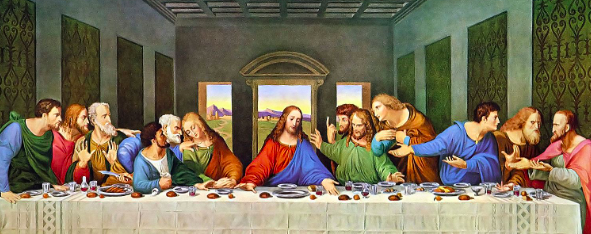The Lord’s Supper, also known as Holy Communion or the Eucharist, is a significant sacrament observed by various Christian denominations. It holds a central place in Christian worship and carries profound importance for believers. In this blog post, we will explore the significance and the various dimensions of the Lord’s Supper.
1. Remembrance of Christ’s Sacrifice:
At the heart of the Lord’s Supper is the act of remembrance. During the Last Supper, Jesus instituted this sacrament, instructing his disciples to partake of bread and wine, symbolizing his body and blood. Christians view the bread as a representation of Jesus’ broken body and the wine as a symbol of his shed blood. By partaking in the Lord’s Supper, believers remember and reflect upon the sacrifice Jesus made on the cross for the forgiveness of sins. It serves as a powerful reminder of the love, grace, and redemption offered through Christ’s death.
2. Fellowship and Unity:
Another essential aspect of the Lord’s Supper is its ability to foster fellowship and unity among believers. When Christians come together to partake in communion, they participate in a communal act that binds them together. It serves as a reminder of the shared faith and common bond that believers have in Christ. The Lord’s Supper emphasizes the idea that all believers are part of one body, the body of Christ. It transcends denominational, cultural, and social barriers, uniting believers in a shared experience.
3. Spiritual Nourishment and Renewal:
The Lord’s Supper is also considered a source of spiritual nourishment and renewal for believers. Just as physical food and drink sustain our bodies, the symbolic elements of bread and wine in the Lord’s Supper nourish and strengthen believers’ spiritual lives. It is believed that through the act of partaking, believers experience a deepening of their relationship with Christ, a renewal of their commitment to follow him, and a spiritual refreshing of their souls. It provides a space for believers to encounter God’s presence and experience His grace in a tangible way.
4. Anticipation of Christ’s Return:
The Lord’s Supper is not only a remembrance of Christ’s sacrifice but also a celebration of his resurrection and an anticipation of his second coming. In the New Testament, Jesus instructed his followers to partake in the Lord’s Supper “until he comes.” Thus, the sacrament serves as a reminder of the hope and expectation that Christians have for the return of Christ. It reinforces the belief that one day, believers will gather with Jesus in his eternal kingdom and experience the fulfillment of God’s promises.
5. Examination and Self-Reflection:
The Lord’s Supper provides an opportunity for believers to examine themselves and engage in self-reflection. Before partaking in communion, it is common for Christians to engage in a time of introspection, confessing their sins and seeking forgiveness. This self-examination allows believers to align their lives with God’s will, seeking reconciliation and renewal. The Lord’s Supper, therefore, serves as a reminder of the need for personal repentance and the continuous pursuit of holiness.
CONCLUSION
In conclusion, the Lord’s Supper holds significant importance for Christians. It is a sacrament that commemorates Christ’s sacrifice, promotes fellowship and unity, provides spiritual nourishment and renewal, anticipates Christ’s return, and encourages self-reflection. The Lord’s Supper is not merely a religious ritual but a deeply meaningful and transformative act that allows believers to encounter the presence of God, experience His grace, and grow in their faith. It serves as a unifying symbol of the shared beliefs and hope that Christians hold dear, reminding them of the central message of Christianity: the life, death, and resurrection of Jesus Christ.
